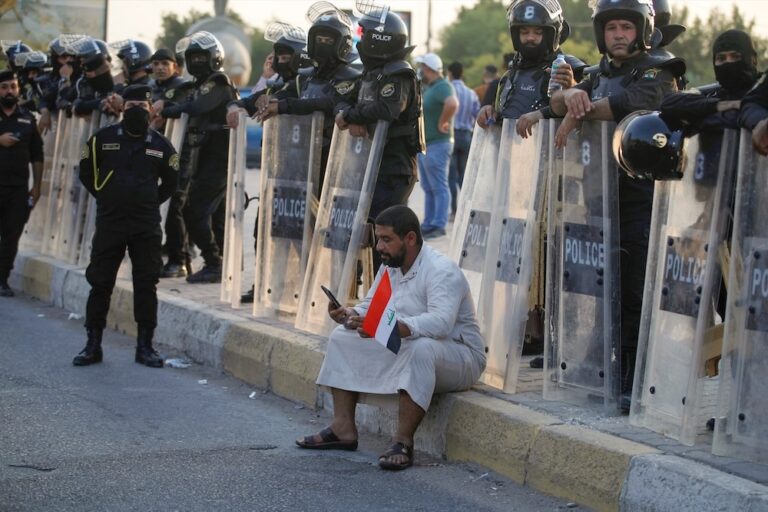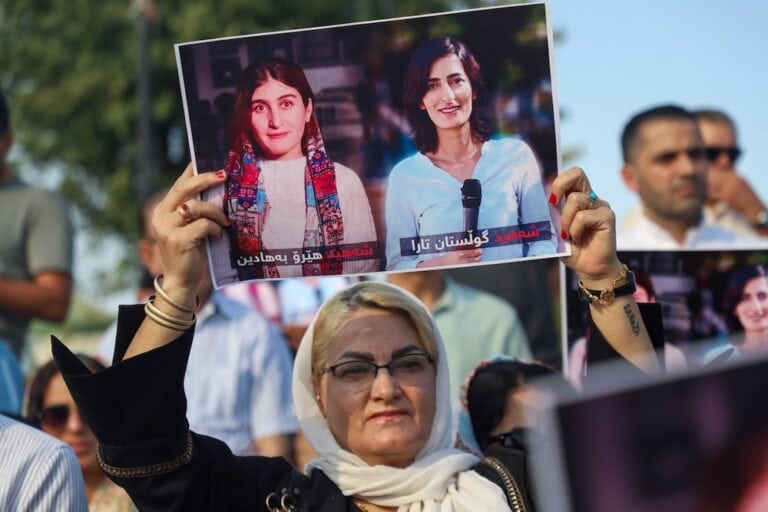The Baghdad Appeal Court overturned a prior defamation ruling, saying no harm had resulted from an article that quoted critics describing the prime minister as "increasingly autocratic."
(ARTICLE 19/IFJ/IFEX) – 14 January 2011 – The International Federation of Journalists (IFJ) and ARTICLE 19 today welcomed the victory of The Guardian newspaper in its appeal against the ruling of a Baghdad primary court, which found that the paper had defamed the Iraqi Prime Minister, Noura al-Maliki, in 2009. The Baghdad Appeal Court overturned the ruling on 28 December 2010, finding that there had been no defamation or harm to al-Maliki, according to a statement on The Guardian website ( http://www.guardian.co.uk/media/2011/jan/12/guardian-appeal-iraq-libel ).
The IFJ and ARTICLE 19 submitted a joint amicus curiae to the court, supporting the Guardian appeal.
“This is good news for Iraq and for the wider Middle East,” said Aidan White, IFJ General Secretary. “It underscores the right of journalists to report and comment fairly on the actions of public figures and, secondly, it shows that democratic values and respect for press freedom are taking root in Iraq.”
The court action was brought by the Iraqi Intelligence Services (INIS) following publication in The Guardian of an article quoting critics of Prime Minister al-Maliki on a visit to the UK who described his rule as ‘increasingly autocratic’. The INIS claimed the article defamed the Prime Minister and the Al-Karakh primary court found in their favour in November 2009.
The Appeal Court last month set aside the ruling after taking testimony from nine experts nominated by the Iraqi Union of Journalists, an IFJ affiliate, who unanimously agreed that the article was not defamatory.
“The fact that the court took expert advice from the country’s leading journalists also sets a precedent,” said White. “By speaking with one voice and in support of a key principle of their profession, the journalists have set a high standard for all media to follow.”
The court also considered the joint amicus curiae submitted by the IFJ and ARTICLE 19 on international standards for freedom of expression. The two organisations argued that the charge of defamation “disregarded well-established international law which guarantees the rights of the media to critically evaluate the activities of governments and their elected leaders”.
“We intervened in this case because the Iraqi government should be protecting journalists, not prosecuting them, and any attempts to interfere with the media’s right to report on politicians and public officials amounts to unacceptable censorship,” said Agnes Callamard, Executive Director of ARTICLE 19. “Politicians are required to tolerate a higher degree of criticism than ordinary citizens, both because of their key role in the democratic process and because they have knowingly laid themselves open to public scrutiny.”
The IFJ and ARTICLE 19, which have been working with the Iraqi Journalists’ Union on training and legal programmes to help create a professional space for independent journalism, say the case illustrates how progress is being made in creating a new culture of press freedom.
“The prosecution of The Guardian was an important challenge and the results are more than encouraging,” added White. “Certainly, the judgment will become a reference point for journalism campaigners throughout the region. In many countries press freedom exists at best in twilight conditions, with scrutiny of political leaders frowned upon. This case shows that in a democracy even the most powerful in the land can be called to account.”


